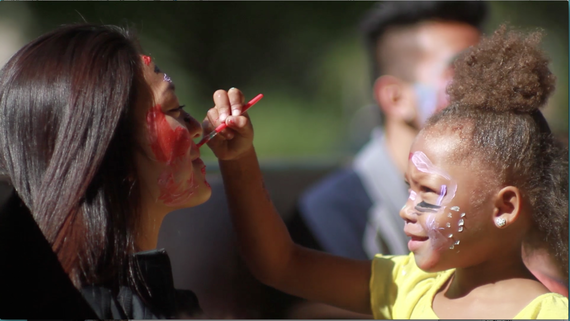How many times have you heard someone suggest that poor people "don't know what to do" or "don't have the motivation" to improve their lives?
These misguided assumptions are behind the fundamentally flawed anti-poverty plan introduced by House Budget Chairman Paul Ryan, as well as most other social programs seeking to help what are perceived as the "helpless poor."
Ryan's plan in particular would require that families in low-income situations have "coaches" who nudge them to make better life decisions. This paternalistic approach disregards what's already happening in America: all across the country, people in under-resourced communities are already actively setting their own priorities, creating and implementing their own solutions, and experiencing powerful, life-improving results.
At the Family Independence Initiative (FII), we have been witnessing and collecting data about these community-led efforts for thirteen years. We know first-hand that the solutions to the problems we all care about--job creation, improving children's education outcomes, quality nutrition--are already being implemented by low-income families. If the efforts don't expand beyond a particular community, it is because as a society we invest in things like "coaches" and not in the families' initiatives directly.
This work often happens without notice, and even more so, without celebration. So in 2012, FII established the Torchlight Prize to recognize and reward everyday people in the United States who come together to strengthen their families and communities. By spotlighting their work, the prize encourages others to invest in these resident-led solutions to amplify their impact.
Today, we're proud to announce ten finalists for the third annual Torchlight Prize:
- Bhutanese Artists of Georgia - Clarkston, GA
- Compact of Free Association Community Advocacy Network (COFACAN) - O'ahu, HI
- Egleston Community Orchard - Boston, MA
- El Valle Women's Collaborative - Ribera, NM
- Hola Ohio - Ashtabula, OH
- KhushDC - Washington, DC
- North Oakland Restorative Justice Council - Oakland, CA
- Organizing Neighborhoods for Equality: Northside - Chicago, IL
- Sama Sama Cooperative - Berkeley, CA
- Solutions for Women - San Francisco, CA
These ten groups didn't wait for policy-makers, service agencies, or philanthropy to create an institution or program to help them. Instead, they rallied together to pool their own resources, talent, and ideas to address issues that were most important to the families in their communities. Whether it's access to healthcare and healthy foods, fighting for social justice, or preserving a group's cultural heritage, this year's finalists are determined to support the resilience and perseverance of their community members. They all share hope for building a greater sense of ownership and pride among residents, which serves as the foundation for their community-building efforts. Several of the groups are composed of families from diverse cultural backgrounds and thus strive to unite community members under a common purpose and through common values.
The strongest thread woven among all of this year's finalists is the desire to increase self-determination and help their friends, family members, and neighbors realize that they have the power to determine their own futures. Not surprisingly, it is these same characteristics found in families who have been successful at achieving upward mobility.
From the finalists, FII will choose up to four winners in September. Each will receive a $10,000 prize to spend in whatever way they see fit.
This country doesn't need more policies, programs, or fixes. We just need to listen, observe, and invest in what groups of everyday people like VietUnity, Somos Tuskaloosa, Black Dot Collective (previous Torchlight Prize winners), and the thousands of other groups just like them are already doing to get ahead. They are the real experts, and promoting their efforts is what will change the landscape of opportunity in the United States.

